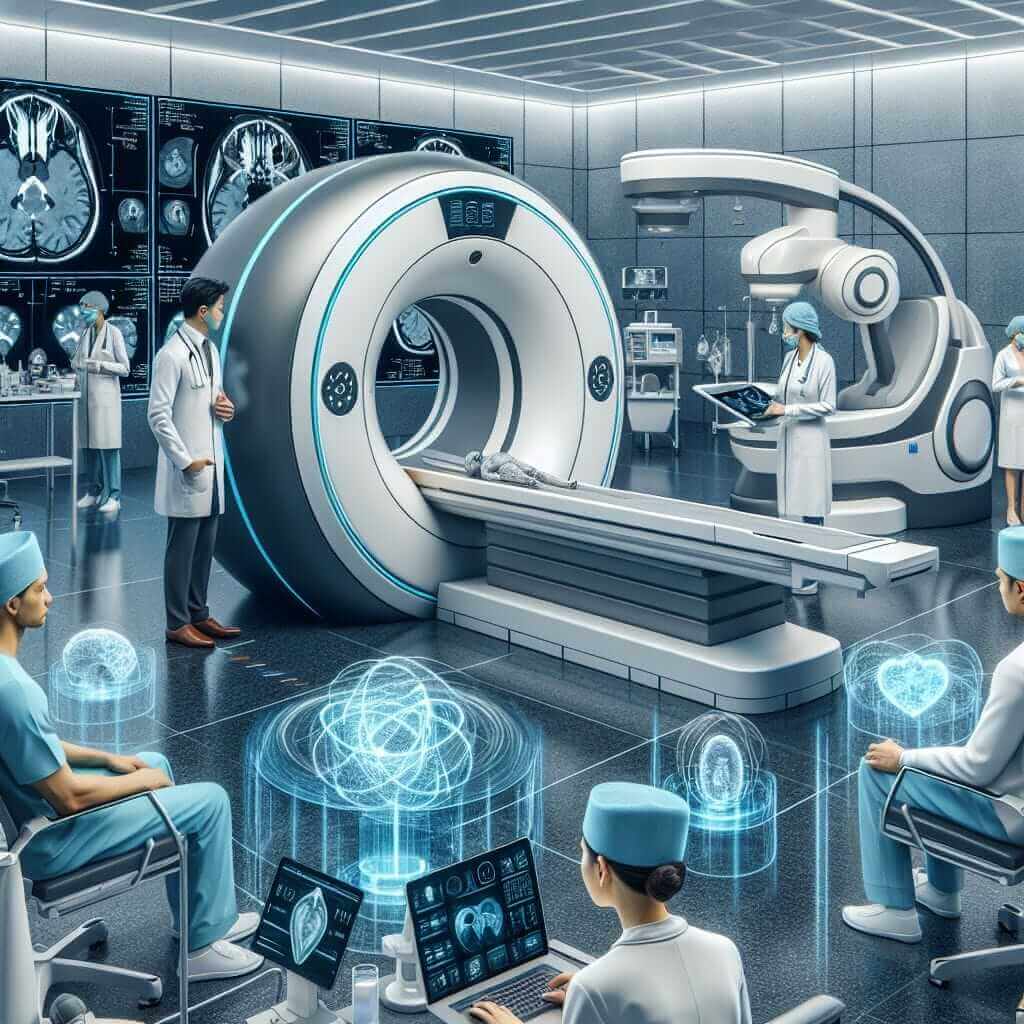Understanding the impact of technological advancements on healthcare quality is crucial in today’s fast-evolving world. This topic frequently appears in the IELTS Writing Task 2 exam, prompting students to critically analyze the pros and cons of technology in healthcare. Here, we will create a comprehensive guide, including a sample essay, analysis, and key vocabulary, aimed at helping IELTS examinees improve their writing skills.
Related IELTS Essay Topics
- To what extent do technological advancements improve healthcare quality? Discuss both views and give your opinion.
- How has technology impacted the quality of healthcare services provided by doctors and nurses?
- Advancements in medical technology have greatly improved patient outcomes. Do the benefits outweigh the disadvantages?
Selected Topic for Sample Essay
We will focus on the first topic: To what extent do technological advancements improve healthcare quality? Discuss both views and give your opinion.
Analyzing the Essay Prompt
The prompt asks for a balanced discussion of both the positive and negative effects of technological advancements on healthcare. A well-structured essay should:
- Introduce the topic and present a clear thesis.
- Discuss the advantages of technological advancements in healthcare.
- Address the disadvantages or concerns.
- Provide a balanced conclusion reflecting your opinion.
Sample IELTS Essay
Introduction
Technological advancements have revolutionized many sectors, including healthcare. While some argue that these advancements significantly improve healthcare quality, others believe they bring about various challenges and drawbacks. This essay will discuss both perspectives and offer my opinion on the topic.
Advantages of Technological Advancements in Healthcare
Firstly, technology has vastly improved diagnostic methods. Advanced imaging techniques like MRI and CT scans provide detailed insights into the human body, enabling early detection and treatment of diseases. For instance, early-stage cancers, which were once difficult to diagnose, can now be identified and treated promptly, significantly increasing patient survival rates.
Secondly, technological innovations have enhanced treatment methods. Robotic surgery, for example, allows for more precise and minimally invasive procedures, reducing recovery time and associated risks. Additionally, wearable health devices enable continuous monitoring of a patient’s vital signs, improving management of chronic conditions like diabetes and hypertension.

Drawbacks of Technological Advancements in Healthcare
On the other hand, the integration of technology in healthcare also poses challenges. One significant issue is the high cost of advanced medical equipment and treatments, which can limit access for lower-income populations. This disparity creates a healthcare divide, where only the affluent can afford the latest and most effective treatments.
Moreover, the reliance on technology can sometimes overshadow the human element of healthcare. Over-reliance on machines and automated procedures may lead to a depersonalized patient care experience, where the compassionate touch of a healthcare provider is diminished.
Conclusion
In conclusion, while technological advancements have undeniably improved healthcare quality by enhancing diagnostic and treatment methods, they also present challenges such as high costs and potential depersonalization of care. On balance, I believe that the benefits outweigh the disadvantages, but efforts should be made to address the drawbacks to ensure equitable access and maintain the human element in healthcare.
Word Count: 300
Tips for Writing about Technological Advancements in Healthcare
- Use specific examples: Refer to real technological advancements like MRI, robotic surgery, and wearable health devices to make your argument compelling.
- Balance your discussion: Present both sides of the argument to show your ability to think critically.
- Clear thesis statement: Ensure your introduction includes a clear thesis that outlines your overall stance.
Key Vocabulary
- Revolutionized (v): [ˌrevəˈluːʃəˌnaɪzd] – To completely change something in a significant way.
- Diagnostic (adj): [ˌdaɪəɡˈnɒstɪk] – Pertaining to the identification of the nature of an illness.
- Minimally invasive (adj): [ˈmɪnɪməli ɪnˈveɪsɪv] – Medical procedures involving the smallest possible incision or injection.
- Vital signs (n): [ˈvaɪtl saɪnz] – Indicators of essential body functions like heart rate and blood pressure.
- Disparity (n): [dɪˈspærɪti] – A significant difference or inequality.
- Depersonalized (adj): [diːˈpɜːsənəlaɪzd] – Lacking human warmth or individuality.
- Automation (n): [ˌɔːtəˈmeɪʃən] – The use of technology to perform tasks without human intervention.
- Affluent (adj): [ˈæfluənt] – Having a lot of money; wealthy.
Conclusion
Understanding the impact of technological advancements on healthcare quality is integral for IELTS Writing Task 2. By discussing both the benefits and the drawbacks, students can create balanced, insightful essays. Other relevant prompts to practice include the effects of technology on healthcare professionals and the overall cost-benefit analysis of medical technology.
For further reading, you can explore A Comprehensive Guide to IELTS Writing Exam 2021 Topics or delve into Should History Stand in the Way of Progress?.
By honing your ability to analyze and articulate your thoughts on such topics, you can achieve a higher band score in the IELTS Writing Task 2 exam.